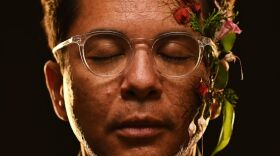If you only know Emily Bett Rickards as the hacker-turned-love-interest on Arrow, her dropkick into Queen of the Ring might leave you stunned. Same for Ash Avildsen, whose résumé includes launching metalcore empire Sumerian Records and directing rock-adjacent indies like American Satan. Together, the two unlikely collaborators have body-slammed history with a biopic about Mildred Burke, a name you’ve never heard but probably should have by now.
“None of my friends who are die-hard pro wrestling fans had heard of her,” Avildsen admits, still shocked. “She was the first woman to headline over men and draw more money than the boys—until Gorgeous George showed up. Moolah never drew like that. Millie drew the real Moolah.”
There’s your headline.
Queen of the Ring, based on Jeff Leen’s Pulitzer Prize-winning book, tells the true story of Burke, a single mom in the 1930s who went from carnival wrestling men to becoming the first female athlete to earn a million bucks. That it was shot in Louisville is a bonus—especially for locals who got to see their city play period dress-up. “We wanted a city that was period-friendly and independent-film friendly,” says Avildsen. “Savannah was on the list too, but Ohio Valley Wrestling is in Louisville, and that was the game-changer.”
Rickards—who plays Burke with a mix of grace and gut-punch intensity—had no wrestling experience going in, but plenty coming out. “The whole team at OVW trained me relentlessly,” she says. “They let me throw them around constantly. I owe everything to them.”
Not that she didn’t have some action background from her CW days, but as she quickly learned, superhero stunts are not the same as taking a proper bump. “There’s persona, there’s choreography, there’s improv choreography,” she explains. “And the pros were whispering in my ear the whole time. Even when it looks like they’re not in charge, they are.”
That realism shows. And it’s not just the physical transformation that sells it—it’s Burke’s emotional arc, from soft to shattered to steely. “She had this innate belief in fairness,” Rickards says. “In the right to choose. That kind of integrity, that engine inside her—that’s timeless.”
Avildsen originally wanted to make a fictional ’80s wrestling movie—think GLOW meets Rocky III—until a phone call from wrestling legend Jim Ross sent him down the Burke rabbit hole. “He goes, ‘Have you ever heard of Mildred Burke?’ I hadn’t. He said, ‘You should read this book.’ I did that weekend and just scrapped the other idea. I was like, screw it, this story has to be told.”
And telling it meant taking a few liberties—artistic, not historical. The vibe is more stylized memory than slavish reenactment. “We made choices to keep the audience in the story,” says Avildsen. “Like, we gave our male lead cauliflower ear on just one side, because both ears looked too freaky.”
Music plays a massive part, not surprising from a guy who signed Asking Alexandria. Corey Taylor shows up crooning “Dust in the Wind,” and Florence + the Machine close it out with “Only If for a Night.” “Florence is my favorite modern female artist,” says Avildsen, eyes lighting up. “That song isn’t one of her hits, but I think it’s one of her best. When we laid it in, the drum hit landed perfectly with Emily’s arm in the final scene. I didn’t even have to re-edit. The universe wanted it.”
That final scene, a quiet moment between Burke and her son, is both poignant and tragic. “That really was it,” says Avildsen. “They never had that closeness again. It’s why I say read the book too—there’s so much more after that.”
Like Burke’s wild success in Japan. Or the messy power struggles that followed. “The golden era of women’s wrestling ended just before TV took off,” he laments. “That’s why nobody remembers her. And yeah, Moolah got the spotlight later—but she never pulled the numbers Millie did.”
Rickards, who also recently played Calamity Jane, sees a connection between the two women. “They were both ahead of their time, not welcome in their time, but they survived. They wanted to be icons.”
And now they are, at least on screen. Queen of the Ring isn’t just a wrestling movie. It’s a reclamation. A revision. And a reminder that sometimes the biggest fights happen before the bell even rings.
Watch the full interview above and then check out the trailer below.






